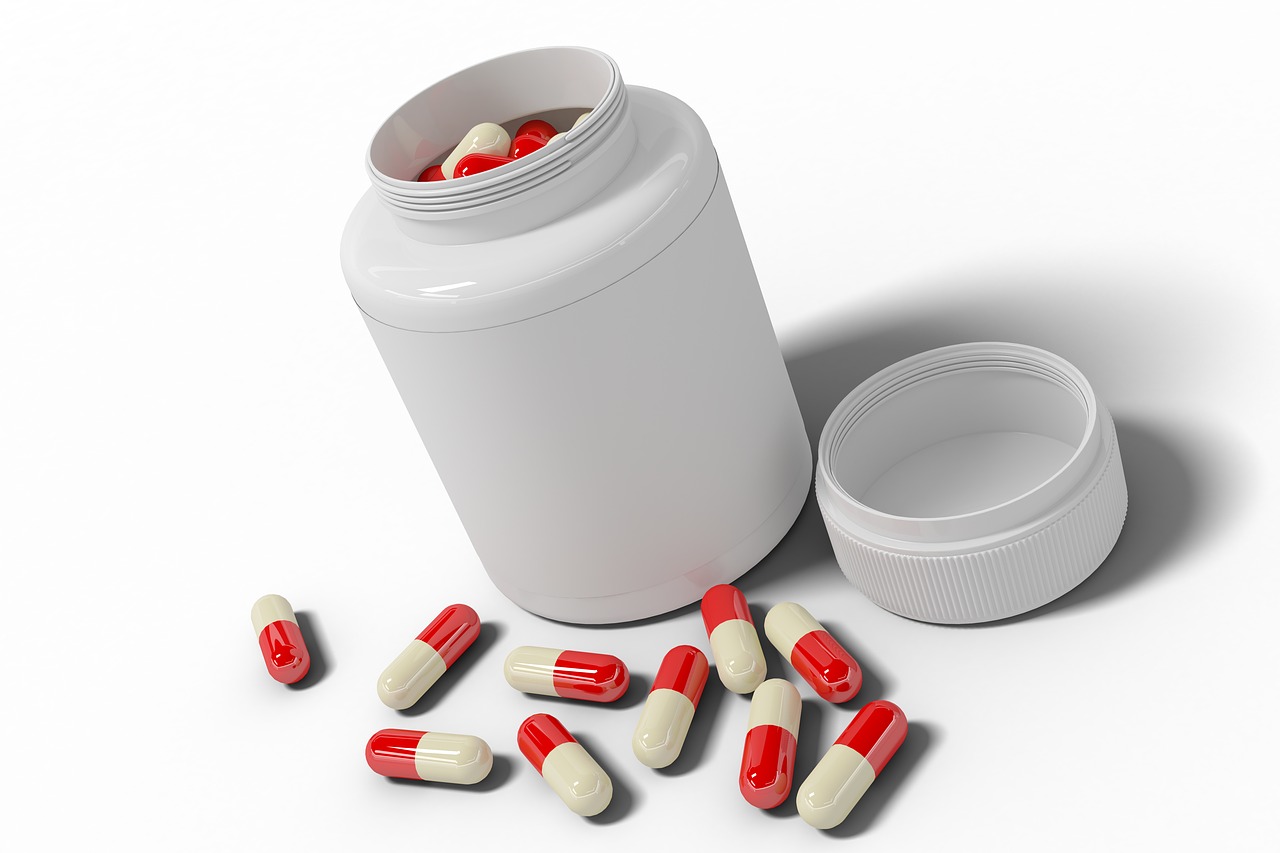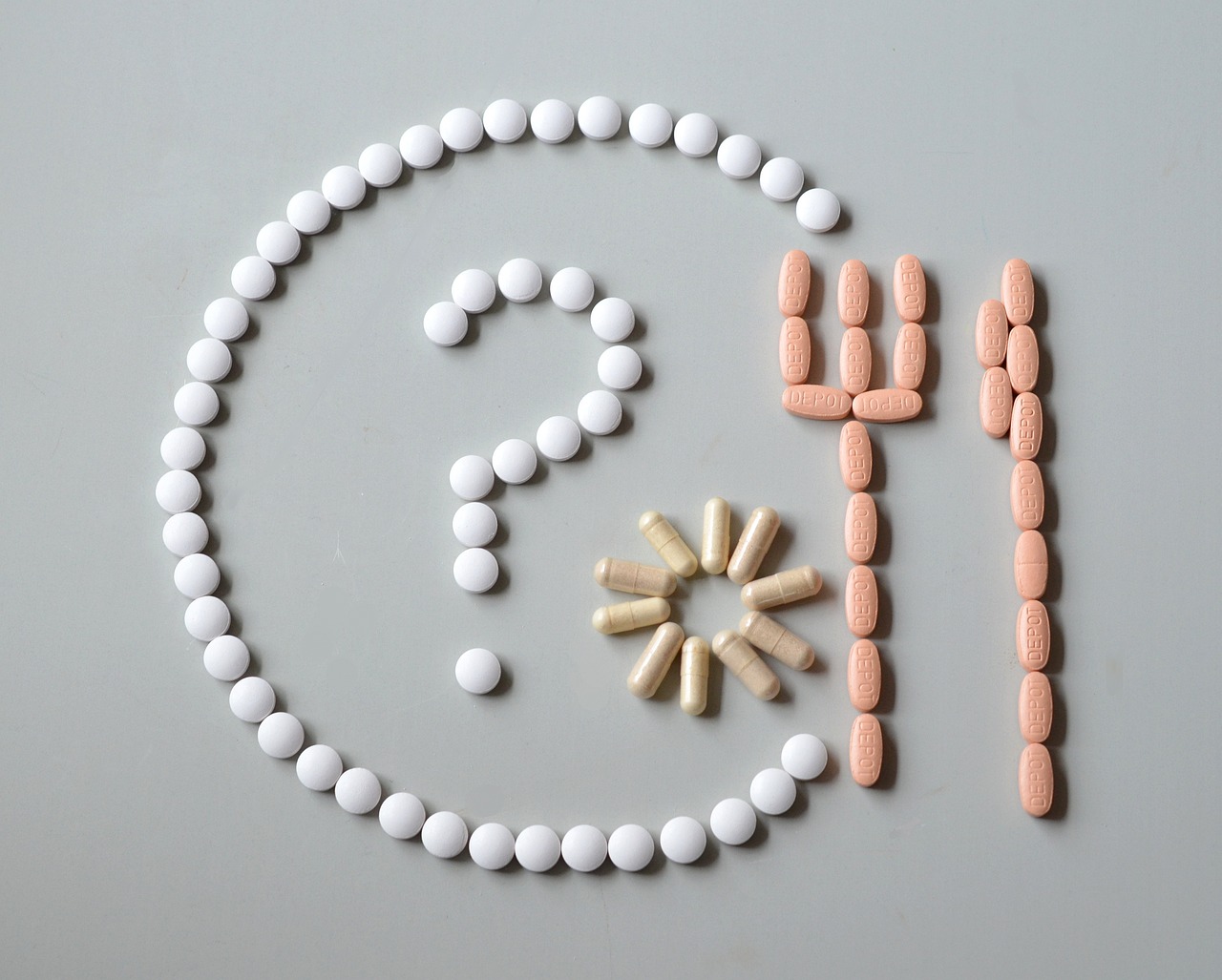Are you wondering how to properly store your supplements to ensure their effectiveness and longevity? Keeping your supplements in the best conditions is crucial for maintaining their potency and getting the full benefits they offer. In this article, we will explore some helpful tips and guidelines on how to store your supplements correctly, so you can optimize their shelf life and experience the desired results.

This image is property of pixabay.com.
Understanding Your Supplements
Supplements are products designed to supplement or enhance the intake of certain nutrients in your diet. They come in various forms, including capsules, tablets, powders, and liquids. Understanding the different types of supplements available is crucial in determining the best storage practices to maintain their effectiveness.
Types of supplements
There are several categories of supplements, each having its own specific purpose. Some common types include:
-
Multivitamins: these supplements contain a combination of vitamins and minerals to support overall health and well-being.
-
Herbal supplements: Derived from plants, these supplements include botanical extracts and herbal remedies known for their potential health benefits.
-
Sports supplements: These are often taken by athletes and fitness enthusiasts to enhance performance, aid recovery, and support muscle growth.
-
Omega-3 fatty acids: Derived from fish oil or plant sources, these supplements provide essential omega-3 fatty acids, which are important for brain health and heart function.
-
Probiotics: These supplements contain beneficial bacteria that support a healthy gut and immune system.
Understanding the specific type of supplement you are taking will help you make informed decisions about their storage requirements.
Essential elements in supplements
Supplements can contain various active ingredients, and it’s important to consider their stability and vulnerability to environmental factors. Here are some essential elements commonly found in supplements and their storage considerations:
-
Vitamins: Vitamins can degrade with exposure to heat, light, and air. Storing them in a cool, dark place and ensuring airtight containers can help preserve their potency.
-
Minerals: Minerals are generally more stable than vitamins but can still be affected by excessive humidity or moisture. Proper storage in dry conditions will prevent deterioration.
-
Omega-3 fatty acids: These supplements are susceptible to oxidation, which can reduce their effectiveness. Storing them in a cool, dark place and refrigerating opened bottles can help maintain their quality.
-
Probiotics: Probiotic supplements contain live bacteria that can be sensitive to heat and moisture. Storing them in a cool, dry place, away from direct sunlight, is essential to preserve their potency.
Understanding the vulnerability of the active ingredients in your supplements will help you take appropriate measures to store them correctly.
Potential risks of improper storage
Improper storage of supplements can lead to reduced effectiveness or even spoilage, rendering them unsafe for consumption. Here are some risks associated with improper storage:
-
Degradation of active ingredients: Exposure to light, heat, moisture, or air can cause the active ingredients in supplements to degrade, reducing their potency and efficacy.
-
Oxidation: Some supplements, such as omega-3 fatty acids, are prone to oxidation. This process can lead to the formation of harmful compounds and rancidity, impacting their quality and safety.
-
Contamination: Inadequate storage can create an environment conducive to microbial growth, leading to potential contamination of the supplements and posing health risks.
-
Inaccurate dosing: Poorly stored supplements can become clumpy, sticky, or hardened, making it difficult to accurately measure and administer the recommended dosage.
Understanding the potential risks of improper storage emphasizes the importance of implementing proper storage practices to maximize the benefits of your supplements and ensure your well-being.
Determining the Ideal Storage Location
To ensure the longevity and effectiveness of your supplements, it’s crucial to identify the ideal storage location. Several factors come into play when determining the best place to store your supplements.
Factors determining storage location
Consider the following factors when choosing a storage location for your supplements:
-
Temperature control: Most supplements require storage at a controlled temperature range to maintain their potency. Extreme temperatures, whether hot or cold, can cause degradation and compromise effectiveness.
-
Light exposure: Light, particularly sunlight, can degrade certain supplements, especially those containing sensitive active ingredients. Protecting them from direct light exposure is crucial.
-
Moisture levels: Excessive humidity or moisture can cause supplements to break down or become moldy. Proper ventilation and humidity control are important for maintaining their stability.
-
Accessibility: Storing supplements in an easily accessible location ensures that you can consistently incorporate them into your daily routine. However, it’s equally important to keep them out of reach of children and pets.
Common places for storing supplements
Consider the following areas for storing your supplements:
-
Kitchen pantry: The kitchen pantry is a popular storage location for many people due to its convenient accessibility. However, it’s important to ensure that the pantry is not exposed to excessive heat or moisture, which can affect supplement quality.
-
Bathroom cabinet: While the bathroom may seem like a convenient storage spot, it is generally not recommended due to the high humidity levels typically present, which can accelerate supplement degradation.
-
Bedroom dresser or closet: Storing supplements in a bedroom dresser or closet can provide a cool, dark, and dry environment, making it an ideal choice for maintaining their potency.
Pros and cons of different storage locations
Each storage location has its advantages and disadvantages. Consider the following pros and cons when deciding where to store your supplements:
-
Kitchen pantry:
- Pros: Convenient accessibility; easy to remember to take your supplements.
- Cons: Exposure to heat and moisture; potential degradation of active ingredients.
-
Bathroom cabinet:
- Pros: Easy access to supplements when getting ready in the morning or evening.
- Cons: High humidity levels; increased risk of degradation due to moisture.
-
Bedroom dresser or closet:
- Pros: Cool, dark, and dry environment; optimal conditions for maintaining supplement potency.
- Cons: May not be as easily accessible as other locations.
By taking into account the factors determining the storage location, as well as the pros and cons of each area, you can make an informed decision about where to store your supplements for optimal effectiveness.
Moisture-Damage Concerns
Moisture can significantly impact the quality and effectiveness of your supplements. Understanding the effects of moisture on supplements and implementing preventive measures is essential for maintaining their integrity.
Effects of moisture on supplements
Excessive moisture can cause the following detrimental effects on supplements:
-
Degradation of active ingredients: Moisture can lead to the breakdown of active ingredients in supplements, reducing their potency and effectiveness.
-
Mold and bacterial growth: Moisture creates a favorable environment for mold and bacterial growth, leading to potential contamination and health risks.
-
Clumping and spoilage: In the presence of moisture, supplements can become sticky or clumpy, making them difficult to consume or administer accurately. Clumped supplements may also indicate spoilage or degradation.
How to prevent moisture damage
To prevent moisture damage to your supplements, follow these guidelines:
-
Choose appropriate containers: Store your supplements in well-sealed, airtight containers to prevent moisture from entering. Consider using containers with moisture-absorbing packets for added protection.
-
Keep away from humidity sources: Store your supplements in areas of low humidity to minimize moisture exposure. Avoid storing them near sinks, showers, or humidifiers.
-
Use desiccants: Desiccants, such as silica gel or moisture-absorbing packets, can help absorb excess moisture. Place them in the supplement containers to safeguard against moisture damage.
-
Ensure proper ventilation: Adequate ventilation in the storage area helps control humidity levels, reducing the risk of moisture damage. Use fans or open windows to promote air circulation if necessary.
Signs of moisture-damaged supplements
Moisture damage may not always be apparent, but there are several signs to watch out for:
-
Clumping or stickiness: If your supplements become clumpy or sticky, it may indicate moisture damage. This can make it challenging to accurately measure and consume the proper dosage.
-
Changes in color or odor: Moisture can cause discoloration or an off-putting odor in supplements. If you notice any unusual changes, it may indicate moisture-related spoilage.
-
Mold or bacterial growth: Visible mold or the presence of a foul smell suggests moisture damage and potential contamination. Discard supplements showing any signs of mold.
If you encounter any signs of moisture damage, it is advisable to dispose of the affected supplements and replace them with fresh ones.
Temperature Considerations when Storing Supplements
Temperature plays a crucial role in maintaining the potency and effectiveness of your supplements. Proper understanding of the ideal temperature range, as well as the consequences of extreme temperatures, will help you preserve their integrity.
Ideal temperature for supplement storage
Most supplements retain their potency and quality when stored within a specific temperature range. The ideal temperature for supplement storage is typically between 59°F (15°C) and 77°F (25°C).
Consequences of extreme temperatures
Exposing your supplements to extreme temperatures can have the following consequences:
-
Heat exposure: High temperatures can degrade the active ingredients in supplements, reducing their effectiveness. Additionally, heat can cause capsules or tablets to soften, making them prone to clumping or sticking together.
-
Cold exposure: Extremely low temperatures can affect certain supplements, particularly liquid ones, causing them to freeze or separate. Freezing can lead to changes in texture and potential degradation.
It’s important to note that some supplements may have specific storage temperature requirements, so always refer to the manufacturer’s instructions or consult a healthcare professional for guidance.
Tips to maintain optimal temperatures
Follow these tips to maintain optimal temperatures for your supplements:
-
Avoid direct sunlight: Direct sunlight can elevate the temperature of storage areas, potentially causing damage to the integrity and potency of your supplements. Store them in shaded areas or use opaque containers.
-
Choose a cool location: Select a storage area that remains consistently cool, such as a bedroom closet or a designated supplement cabinet. Avoid storing supplements near heat-emitting appliances or in areas prone to temperature fluctuations.
-
Consider refrigeration when necessary: Some supplements, such as certain probiotics or liquid formulations, may require refrigeration for optimal stability. Follow the manufacturer’s recommendations regarding refrigeration to maintain their efficacy.
By taking temperature considerations into account and implementing appropriate storage practices, you can ensure your supplements stay at their optimal effectiveness throughout their shelf life.

This image is property of pixabay.com.
Impact of Light Exposure on Supplements
Light exposure can significantly impact the quality and effectiveness of your supplements, particularly those containing light-sensitive active ingredients. Understanding the potential deterioration caused by light exposure and implementing proper storage measures is vital.
Deterioration from light exposure
Light exposure, especially to sunlight, can have the following detrimental effects on supplements:
-
Oxidation of nutrients: Some vitamins and other active ingredients in supplements are susceptible to oxidation when exposed to light, diminishing their nutritional value.
-
Fading potency: Sunlight can degrade the potency of certain supplements, causing them to lose their effectiveness over time.
-
Photodegradation: UV light can cause structural changes in active ingredients, leading to reduced bioavailability and potential toxicity.
Safe storage away from light
To protect your supplements from light damage, consider the following safe storage practices:
-
Choose opaque containers: Opt for containers that are opaque or dark-colored to minimize light penetration. This helps shield your supplements from direct light exposure.
-
Use dark storage areas: Store your supplements in dark areas away from natural and artificial light sources. Closed drawers, cupboards, or closets are suitable options.
-
Avoid clear or transparent containers: Clear or transparent containers may look aesthetically pleasing, but they offer minimal protection against light exposure. It’s best to opt for opaque containers to preserve supplement integrity.
Light-blocking containers for supplements
If opaque containers aren’t available, you can use a light-blocking strategy to protect your supplements:
-
Wrap in foil or amber-colored material: Wrap your supplement containers in aluminum foil or place them inside amber-colored bags to create a light-blocking barrier. This helps shield them from direct light exposure.
-
Store in a dark box or drawer: Place the wrapped supplement containers in a dark box or drawer to further minimize light penetration and preserve potency.
By storing your supplements in light-blocking containers or areas away from light sources, you can maintain their quality and maximize their effectiveness.
Preserving Supplements Shelf Life
Maximizing the shelf life of your supplements ensures that they remain potent and effective throughout their intended usage period. Understanding supplement expiration dates, inspecting for spoilage, and implementing suitable preservation methods are key to achieving this goal.
Understanding supplement expiration dates
Supplements typically carry an expiration date, indicating the timeframe during which they are expected to remain stable and effective. Understanding these dates is vital for determining the freshness and potency of your supplements.
-
Best before date: This refers to the period during which a supplement is expected to retain its peak quality, flavor, and potency. Consuming the supplement before this date ensures optimal results.
-
Expiration date: Beyond this date, the effectiveness and reliability of the supplement may decline. It is generally recommended to avoid consuming supplements after their expiration dates.
It’s important to note that certain supplements, such as probiotics or certain herbal remedies, may have shorter shelf lives and may require refrigeration. Always refer to the manufacturer’s instructions for specific guidance.
Inspecting supplements for spoilage
Regularly inspecting your supplements for signs of spoilage helps ensure their quality and safety. Consider the following factors when inspecting your supplements:
-
Changes in appearance: Look for any significant changes in color, texture, or consistency. Discoloration or clumping may indicate spoilage or degradation.
-
Unusual odors: Supplements should not emit strong or foul odors. If you notice any unusual or off-putting smells, it may indicate spoilage.
-
Expired supplements: Take note of the expiration dates and discard any supplements that have passed their expiry dates. Consuming expired supplements may be ineffective or potentially harmful.
Methods to extend supplement shelf life
To extend the shelf life of your supplements, consider the following preservation methods:
-
Proper storage conditions: Maintain ideal storage conditions, including temperature, light, and moisture control, to preserve supplement integrity and potency.
-
Re-seal containers tightly: After each use, ensure that supplement containers are tightly sealed to prevent exposure to air and moisture.
-
Avoid transferring supplements: Unless necessary, avoid transferring supplements into different containers. Original packaging is often designed to protect against external factors.

This image is property of pixabay.com.
Discussing Special Storage Needs of Certain Supplements
While general storage guidelines can apply to most supplements, some may have specific storage requirements due to their unique characteristics. Understanding the special storage needs of certain supplements helps ensure their potency and effectiveness.
Refrigerated supplements
Certain supplements, such as probiotics or certain liquid formulations, may require refrigeration for optimal stability. The cold temperature helps maintain their viability and prevents bacterial growth. Always check the manufacturer’s instructions for specific storage recommendations.
When refrigerating supplements, consider the following:
-
Dedicated shelf: Reserve a specific shelf or area in the refrigerator solely for storing supplements. This prevents cross-contamination and ensures consistent temperature control.
-
Temperature consistency: Check that the refrigerator temperature remains consistently within the appropriate range for supplement storage. Fluctuations or extreme temperature variations can affect their potency.
Travel-friendly supplements
For individuals frequently on the go, travel-friendly supplements may be a convenient option. These supplements are typically designed for ease of use and portability. When storing and travelling with such supplements, consider the following:
-
Compact packaging: Travel-friendly supplements often come in smaller, portable packaging. Ensure that the containers are tightly sealed to prevent leakage or moisture exposure.
-
Carrying cases: Use dedicated carrying cases or travel containers specifically designed for supplements. These can help protect them from light exposure, moisture, and physical damage during travel.
Uniquely sensitive supplements
Certain supplements, such as those containing enzymes or live cultures, may have increased sensitivity to environmental factors. When storing these supplements, consider the following:
-
Follow instructions carefully: Read and adhere to the manufacturer’s instructions for storing sensitive supplements. They often outline the specific requirements to maintain their potency.
-
Consult a healthcare professional: If you are unsure about the storage needs of a specific supplement, consult a healthcare professional or pharmacist for guidance. They can provide tailored recommendations based on the supplement’s unique characteristics.
Understanding and accommodating the special storage needs of certain supplements ensures their optimal efficacy and prolongs their shelf life.
Securing Supplements from Children and Pets
It is crucial to ensure the safety of children and pets by securing your supplements from accidental ingestion. Taking appropriate measures to prevent access and selecting childproof containers create a safe environment for your loved ones.
Potential dangers of accidental ingestion
Children and pets are naturally curious and may be attracted to brightly colored supplement containers or the scent of certain dietary supplements. Ingesting supplements intended for adults can lead to various health risks, including:
-
Toxicity: Many adult supplements contain higher doses of vitamins, minerals, or herbal ingredients, which can be toxic or harmful to young children or pets.
-
Choking hazards: Supplements, especially tablets or capsules, can pose a choking hazard for children or pets if not stored properly or left within their reach.
-
Adverse reactions: Children and pets may have adverse reactions or allergies to specific supplement ingredients. Accidental ingestion can lead to unwanted side effects or allergic responses.
Childproof containers for supplements
Childproof containers are designed to prevent easy access and accidental ingestion by children. When selecting supplement containers, consider those with childproof features, such as:
-
Safety caps: Choose containers with safety caps that require specific actions or techniques to open, making them difficult for children to access.
-
Tamper-evident seals: Containers with tamper-evident seals assure the integrity of the supplements and provide an additional safeguard against accidental ingestion.
-
Lockable storage solutions: For added safety, consider lockable storage options to prevent young children or pets from gaining access to supplement containers.
Storage areas inaccessible to children and pets
In addition to childproof containers, it’s crucial to store your supplements in areas that are completely inaccessible to children and pets. Consider the following guidelines:
-
High shelves or cabinets: Store your supplements on high shelves or in cabinets that children or pets cannot reach even when climbing or jumping.
-
Locked containers or rooms: If you have particularly curious or persistent pets, consider storing your supplements in locked containers or, when necessary, in locked rooms or spaces.
-
Dedicated storage areas: Dedicate a specific storage area for your supplements, away from areas frequented by children or pets, such as playrooms or dining areas.
By implementing childproof containers and storing your supplements in secure, inaccessible locations, you can effectively protect children and pets from accidental ingestion.

Organizing Your Supplement Collection
Keeping your supplement collection organized and easily accessible streamlines your daily routine and ensures you can take them consistently as recommended. Employing effective strategies for sorting, labeling, and maintaining an inventory of your supplements will help you stay organized.
Sorting supplements by type
When organizing your supplement collection, sorting them by type can make it easier to locate and manage them. Consider the following classification categories:
-
Vitamins: Group together all your vitamin supplements, including individual vitamins and multivitamins, in one designated area.
-
Minerals: Create a separate section for mineral supplements, such as calcium, iron, zinc, or magnesium.
-
Herbal supplements: Allocate a specific area for your herbal supplements, including botanical extracts, herbal remedies, or teas.
-
Sports supplements: Dedicate a section to sports or performance-enhancing supplements, such as protein powders, creatine, or pre-workout formulas.
-
Specialty supplements: If you have specialty supplements, such as probiotics, omega-3 fatty acids, or immune support formulations, separate them into their own category.
Sorting your supplements in this manner allows for quick and easy access, streamlining your daily routine.
Labeling supplement containers
Labeling your supplement containers with clear and accurate information helps prevent confusion and enhances organization. When labeling, include the following details:
-
Product name: Clearly state the name of the supplement on the container label to identify it easily.
-
Dosage instructions: Include the recommended dosage instructions and any specific conditions or timing requirements.
-
Expiration date: Note the expiration date on the label to track the freshness of the supplement easily.
-
Other relevant information: Include any additional information, such as allergen warnings, storage requirements, or special instructions.
Labeling your supplement containers ensures that you can quickly and accurately identify the supplements you need, eliminating potential confusion or errors.
Maintaining an inventory of your supplements
Keeping track of your supplement inventory helps you monitor usage, check expiration dates, and plan for restocking. Consider the following tips when maintaining an inventory:
-
Spreadsheet or notebook: Create a dedicated spreadsheet or notebook to record the name, dosage, quantity, and expiration dates of each supplement.
-
Regular updates: Update the inventory regularly, noting when you start a new bottle, finish an existing one, or discard expired supplements.
-
Restocking reminders: Set reminders in your calendar or create an alert system to prompt you to restock supplements when the quantities are low.
Maintaining an up-to-date inventory allows you to manage your supplement usage effectively, ensuring you never run out or consume expired products.
By implementing sorting strategies, labeling containers, and keeping an inventory of your supplements, you can maintain an organized and efficient system that simplifies your daily supplement routine.
Recycling and Disposing of Supplements Properly
When supplements reach their expiration dates or are no longer suitable for consumption, it’s important to dispose of them properly. Ethical disposal of expired supplements, recycling of containers, and Supporting eco-friendly supplement brands contribute to a sustainable environment.
Ethical disposal of expired supplements
To ethically dispose of expired supplements, consider the following guidelines:
-
Check local regulations: Research specific local guidelines for proper disposal of supplements. Some areas may offer specific disposal programs or instructions for handling expired supplements.
-
Discard in sealed containers: Place expired supplements in a sealed bag or container to prevent them from coming into contact with the environment or posing a risk to others when disposed of.
-
Do not flush down the toilet: Never flush supplements down the toilet or pour them down the drain, as they can contaminate the water supply or harm aquatic life.
Recycling supplement containers
Many supplement containers are recyclable, making it important to dispose of them responsibly. Follow these steps for recycling supplement containers:
-
Rinse thoroughly: Before recycling, rinse out any remaining supplement residue from the container to prevent contamination.
-
Check local recycling guidelines: Confirm whether your local recycling program accepts supplement containers. Some plastic or glass containers may be recyclable, while others may require special handling.
-
Remove labels and lids: Before recycling, remove any labels or lids to ensure proper sorting and recycling of the container.
Eco-friendly supplement brands
Supporting eco-friendly supplement brands can contribute to a more sustainable future. When selecting supplements, consider the following eco-friendly practices:
-
Sustainable sourcing: Look for brands that source their ingredients sustainably, minimizing environmental impact.
-
Packaging materials: Choose brands that use eco-friendly packaging materials, such as recyclable or biodegradable options, to reduce waste.
-
Transparency and certifications: Seek out brands that prioritize transparency and hold relevant certifications, illustrating their commitment to ethical and sustainable practices.
By responsibly disposing of expired supplements, recycling containers, and supporting brands with sustainable practices, you can actively contribute to a greener and more eco-conscious lifestyle.
In conclusion, understanding how to properly store your supplements is essential for maintaining their effectiveness and ensuring your well-being. Factors such as temperature control, light exposure, moisture levels, and secure storage from children and pets play crucial roles in preserving the potency of your supplements. By following the guidelines outlined in this comprehensive article, you can optimize the storage, shelf life, and organization of your supplements, promoting their longevity and maximizing their benefits.




